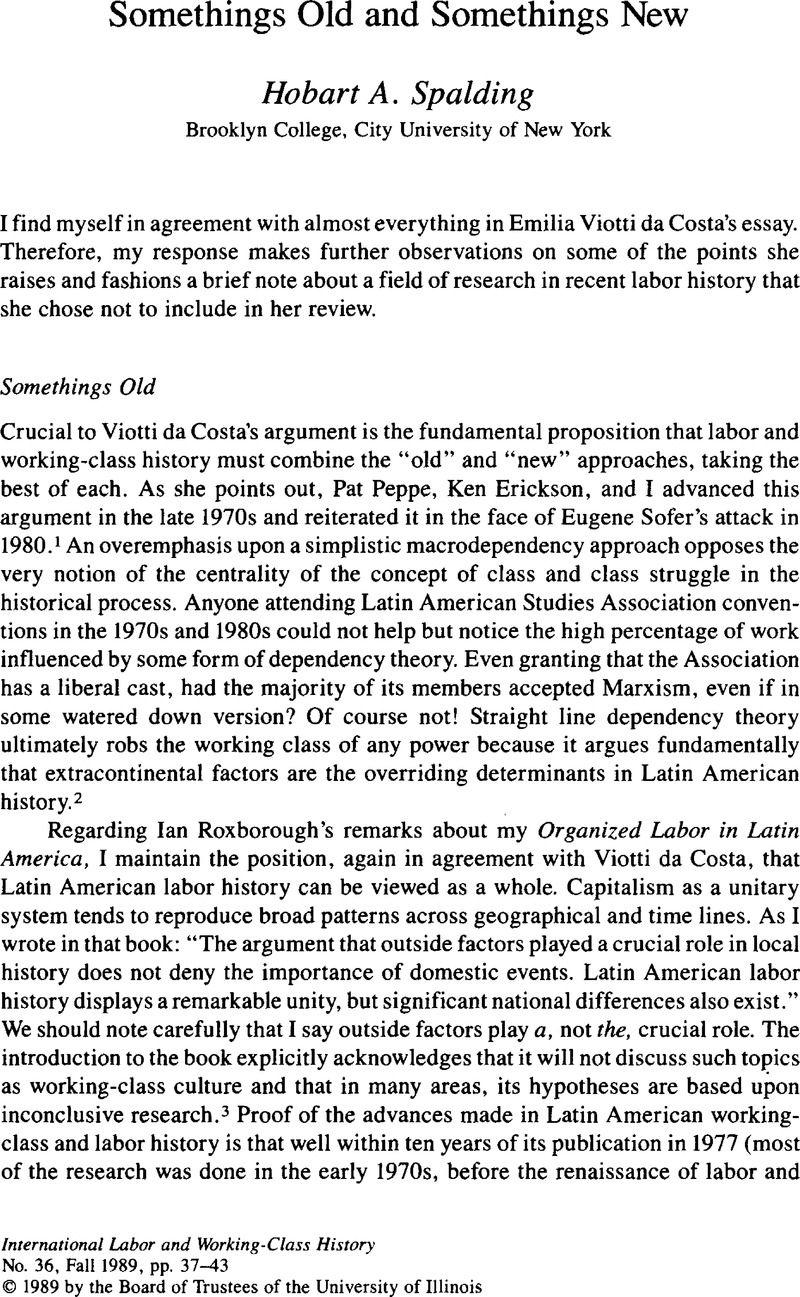No CrossRef data available.
Published online by Cambridge University Press: 16 December 2008

1. Erickson, Kenneth Paul, Peppe, Patrick V., and Spalding, Hobart A., “Dependency vs. Working-Class History: A False Contradiction,” Latin American Research Review 15, 1 (1980): 177–81Google Scholar, and Sofer, Eugene, “Recent Trends in Latin American Labor Historiography,”Google Scholaribid., 167–76.
2. An excellent discussion of dependency and Marxism is Pregger-Roma´n, Charles G., “Dependence, Underdevelopment, and Imperialism in Latin America: A Reappraisal,” Science and Society 47 (Winter 1983–1984): 406–26.Google Scholar
3. See Spalding, Hobart A., Organized Labor in Latin America: Historical Case Studies of Workers in Dependent Societies (New York, 1977), xiv, xii.Google Scholar
4. See Bergquist, Charles, Labor in Latin America: Comparative Essays on Chile, Argentina, Venezuela, and Colombia (Palo Alto, 1986)Google Scholar; Winn, Peter, Weavers of Revolution: The Yarur Workers and Chile's Road to Socialism (New York, 1986)Google Scholar; and James, Daniel, Resistance and Integration: Peronism and the Argentine Working Class, 1946–1976 (Cambridge, 1988).Google Scholar
5. See, for example, Cantor, Daniel and Schor, Juliet, Tunnel Vision (Boston, 1987)Google Scholar; and Armstrong, Robert, Frundt, Hank, Spalding, Hobart, and Sweeney, Sean, Working Against Us: The American Institute for Free Labor Development and the International Policy of the AFL-CIO (New York, 1988).Google Scholar
6. See, for example, Spalding, Hobart A., “U.S. Labour Intervention in Latin America: The Case Study of the American Institute for Free Labor Development,” in Trade Unions and the New Industrialization of the Third World, ed. Southall, Roger (Pittsburgh, 1988), 259–86Google Scholar; and Spalding, , “Neither Pure nor Simple: The AFL-CIO in Latin America,” NACLA Report on the Americas 22 (05–06 1988): 13–27, 37–38.Google Scholar
7. Frundt, Henry J., Refreshing Pauses: Coca-Cola and Human Rights in Guatemala (New York, 1987).Google Scholar
8. For more on Frundt and other publications stressing labor foreign policy, see Spalding, Hobart A., “Solidarity Forever? Latin American Unions and the International Labor Network,” Latin American Research Review 24, 1 (1989): 253–65.Google Scholar